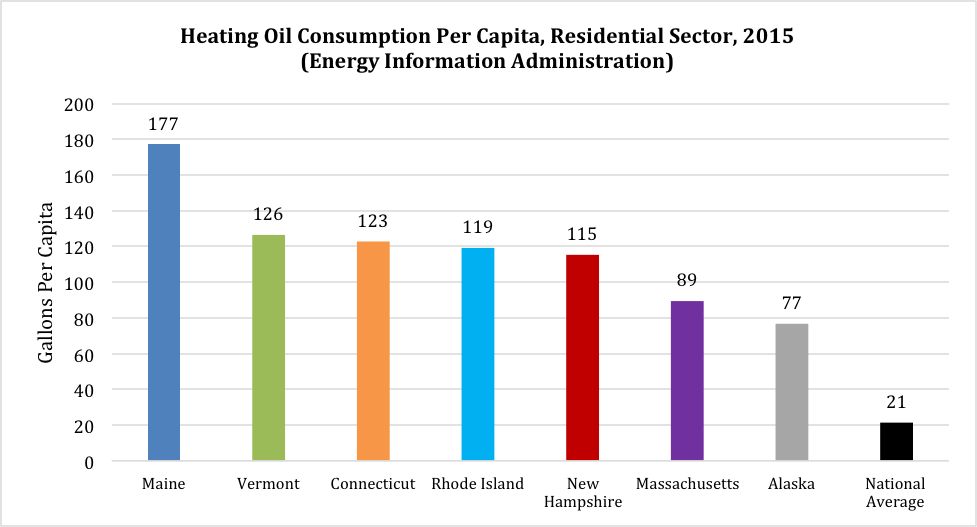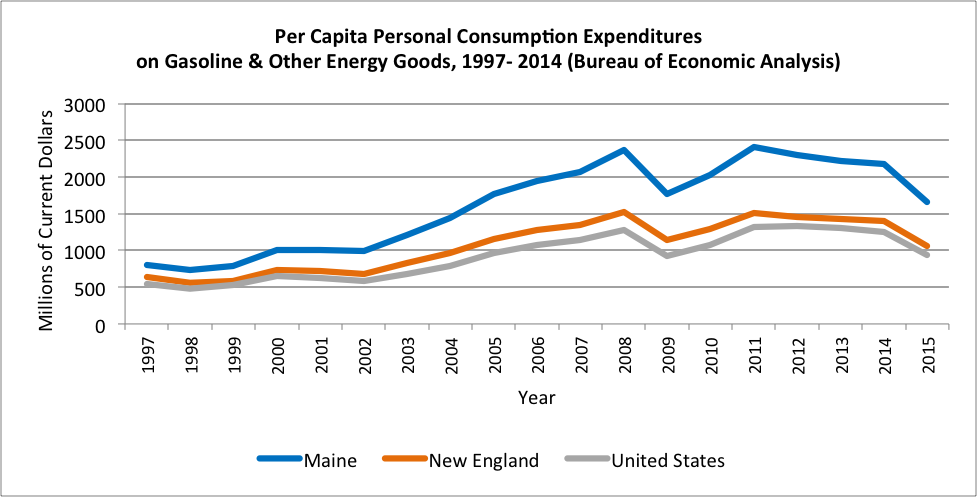
In 2011, the Maine Legislature adopted a statutory goal to reduce oil use 30% by 2030. Maine consumes more heating oil per capita than any other state, making us susceptible to price volatility and fuel shortages. Mainers face many other heating issues, such as old, inefficient heating systems; poorly insulated and weatherized homes; and a long heating season. Maine is at a crossroads for heating and transportation energy policy, with some roads leading to long-term solutions and others accomplishing more short-term goals.

Heating system ease of use and affordability are important considerations in developing a robust heating energy policy. Mainers, especially the growing elderly population, want their heating system to be simple and easy to use. They understandably do not want to carry fuel to their stoves, but instead want to set a thermostat and be comfortable all season long. For example, for wood pellets to be considered a viable heating option for homeowners, suppliers need to continue developing ways to make them more user-friendly. Pellet boilers with hopper-fed pellets are certainly a step in the right direction for this industry.
Switching heating systems or even upgrading a system is often costly for the homeowner. Many Mainers are unable to afford to change their current heating system. However, financial assistance programs and additional education and outreach are options to more affordable heating.
Having an easy and efficient system will not reduce one’s heating bill or reduce one’s fuel consumption if their house is poorly weatherized. Another Maine statutory goal is for 100% of homes and 50% of businesses to be weatherized by 2030. While this is an aggressive goal, weatherization assistance programs and policies are already in place to help reach it. New infrastructure, buildings, and heating systems may need to meet or exceed efficiency and weatherization standards and regulations to help reduce oil dependency and heating bills.
As new technology is developed, and as more infrastructure is needed to accommodate the new technology and the increase in electrical demand, Maine will need an educated and trained workforce to meet this increased demand. And, as Mainers electrify their heating, Maine’s grid will need to be more resilient to ensure comfort and security year-round. Electric utilities will play a key role in ensuring heating electrification is done affordably, efficiently, and with transparency.

Maine is a rural state, resulting in many vehicle miles traveled. Maine uses more energy per capita and motor fuel per capita for transportation than the United States average, which unsurprisingly, also results in higher transportation fuel expenditures. Just like heating, Mainers struggle with vehicle fuel price volatility. Reducing Maine’s oil dependency in the transportation sector involves Mainers moving more efficiently and increasing the use of alternative fuel vehicles. This can be challenging, as Maine is one of the least densely populated states in the country. Diminished housing affordability and availability can contribute to housing sprawl and strand workers and the elderly outside the reach of public transport and vital services. Increasing electric charging corridors, ride sharing programs, and public transportation routes are all potential options to deal with this issue while also reducing emissions.
Transportation Energy Use Per Capita, Million Btu per capita, 2013
(U.S. Department of Transportation)

Motor Fuel Use Per Capita, Gallons Per Capita, 2013
(U.S. Department of Transportation)

Want to learn more about The Future of Fossil Fuels in Maine?
Join E2Tech and the Governor's Energy Office on Thursday, October 19 from
7:15 AM-12:00 PM at Maple Hill Farm Inn and Conference Center.